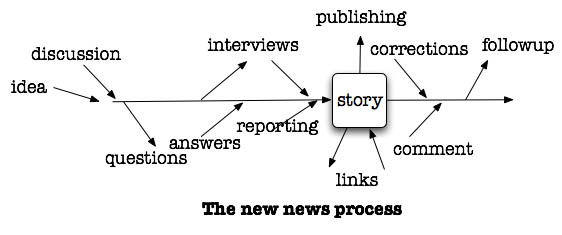 We have a new puppy in our house, thanks to my youngest daughter moving in a few weeks ago. Her name is Chibi, which is a Japanese Manga term meaning "a small person" or "little one." She is certainly that, a long-haired miniature dachshund that will be about eight pounds when she's all finished growing.
We have a new puppy in our house, thanks to my youngest daughter moving in a few weeks ago. Her name is Chibi, which is a Japanese Manga term meaning "a small person" or "little one." She is certainly that, a long-haired miniature dachshund that will be about eight pounds when she's all finished growing.
And growing, she is. My daughter wishes that she'd stay at her infant size, because it's amazing how much she's grown in just two weeks. She's fully twice the size she was when we brought her home.
This longing to keep things as they are is a part of the human condition, and it's the source of all nostalgia. In 1986, Eddie Money sang, "I wanna go back and do it all over, but I can't go back I know." People could relate to the emotion of being trapped on a moving train. After the Paris Exposition in 1900, Henry Adams had the revelation that life had passed him by. He wrote that "the law of nature is chaos, while the dream of man is order," and for media companies today, our dream of order is becoming one depressing nightmare.
The World Wide Web is evolving before our eyes. Some are very comfortable with this, but the truth is that most are not. Our culture likes to take its time — time to analyze new things that come along, milk them for everything we can get out of them, and then move on to the next thing, thank you very much. The Web, however, is moving at light speed, its seeming chaos threatening to suck the world as we know it into a vortex of swirling innovation. We're afraid that it will either destroy us or leave us behind. Or perhaps even both.
In the beginning was the blog, and the blog was with the creators, and the creators thought it was good. But the creators wanted more, and so they sought speed and freedom from the wires that enslaved them. Broadband and mobility were their next creations. And the bloggers looked upon the Web and saw that connecting with others was its real virtue, and so was born the social network. But the social net was limited by profiteers, and the creators wanted more. And so the simple text world of Twitter was birthed and prospered, followed by methods of tying everything together. The creators looked upon this, too, and saw that it was good.
There are common threads throughout these innovations:
- Communicating
- Connecting
- Empowering
- Enabling
- Participating
- Growing
But perhaps the most revolutionary trend that these innovations are creating is the shift from then to now, finished to unfinished, perfect to imperfect, fixed to process. Welcome to the world in real time, what I'm increasingly comfortable with calling "the processing Web." The market for news and information that is packaged will likely always exist, although it will never again live in the stratosphere of the information hierarchy. Information in real time renders all that packaging unnecessary and a waste of that most precious commodity, a person's time. Make no mistake about it: Time is the real driver here; technology is but its servant.
 The mainstream press has all kinds of problems with this, of course, and these problems are getting in the way of embracing what is here to stay. That bastion of all that is holy about the professional press, The New York Times, took a well-considered shot at blogs recently in taking the processing Web to task for reporting rumors, specifically that Apple was in talks to acquire Twitter. The Times piece — presented as a factual article and not a commentary — lifted quotes from Michael Arrington of TechCrunch that fit its predisposition on the matter, and led Arrington to correct the record online. His piece contains this gem:
The mainstream press has all kinds of problems with this, of course, and these problems are getting in the way of embracing what is here to stay. That bastion of all that is holy about the professional press, The New York Times, took a well-considered shot at blogs recently in taking the processing Web to task for reporting rumors, specifically that Apple was in talks to acquire Twitter. The Times piece — presented as a factual article and not a commentary — lifted quotes from Michael Arrington of TechCrunch that fit its predisposition on the matter, and led Arrington to correct the record online. His piece contains this gem:
We don't believe that readers need to be presented with a sausage all the time. Sometimes itís both entertaining and informative to see that sausage being made, too. The key is to be transparent at all times. If we post something we think is rough, we say so. If we think itís absolutely true, we signal that, too, while protecting our sources.
This is an apt description of the difference between the real time presentation of information and that which has been fully vetted and packaged. Go read the Arrington article, for it's a primer on why traditional media is painting itself into the corner of irrelevance.
Arrington references a seminal piece by Jeff Jarvis on the subject that is also must-reading for the interested. Looking at the same New York Times  article, Jarvis calls it "product versus process journalism: the myth of perfection versus the beta culture."
article, Jarvis calls it "product versus process journalism: the myth of perfection versus the beta culture."
This is journalism as beta. I make a big point of that in What Would Google Do? — that every time Google releases a beta, it is saying that the product is incomplete and imperfect. That is inevitably a call to collaborate. It is — even from Google — a statement of humanity and humility: we're not perfect.
Ah, but thereís the problem: journalismís myth of perfection. And itís not just journalism that holds this myth. It is the byproduct of the means and requirements of mass production: If you have just one chance to put out a product and it has to serve everyone the same, you come to believe itís perfect because it has to be, whether that product is a car (we are the experts, we took six years to tool up, it damned well better be perfect) or government (where, I'm learning, employees have a phobic fear of mistakes — because citizens and journalists will jump on them) or newspapers (we package the world each day in a box with a bow on it — you're welcome).
Jeff includes the diagram below that reveals the essence of process journalism.

This timeline refers to a "story" that is ultimately published in packaged form, but I think process journalism goes beyond that. There's no real need for packaging, because the audience is a part of the process of gathering the story. This concept is foreign to contemporary professional journalism, and it produces a unique cocktail of ignorance, condescension, and demagoguery from people who allegedly explore facts before reaching conclusions. There ought to be a law that you can't write about the Web, if you don't understand it.
I've been writing for years that the news business is evolving from a finished product to a process, so I'm obviously on the side of Jeff and Michael in this issue with the Times. As I tell clients, news has always been a process, but we've only let consumers in on the end of that process. The concept of Continuous News that we recommend to all of our clients lets those same consumers in on the news-gathering process. It's their way of participating in history with us, and we think that's a compelling reason for consumers to pay attention. We can even use this stream of thought to give people reasons to watch or read our packaged products and services. Along the way, our clients are learning all about unbundled media and the real time aspects of today's information world. Eyes are opening to the reality that waiting until everything is packaged for the six o'clock news or the morning paper is just an invitation to let somebody else seize the news agenda in our markets.
Moreover, the audience for online news is largely a Monday to Friday, 8 a.m. to 5 p.m. crowd, ideally suited to a news-as-a-process service.
Continuous News does not negate the need for packaged news. It's not "all or nothing," "one or the other." There is and will always be the need for that first draft of history. Humankind needs that record, but the record can be made after the public process. It will be complete, contain multiple points-of-view, and be pretty hard to manipulate by self-serving oligarchs, whether they exist in the public or private spheres of culture."
The processing Web is bigger than just the adventures of journalism, for its long-term ramifications impact every institution of our culture built on that which is packaged and perfect. Time is indeed the driver, for people are weary of their time taking a back seat to that of the institutions who claim to serve their needs. No profession is guiltier of this than the medical profession, and the calls for healthcare reform make it a logical candidate for disruption by the processing Web.
Online search gives time back to us, and for that we are grateful. No trips to the library, or scouring through the Yellow Pages or newspaper classifieds. No thumbing through cook books or browsing the encyclopedia that takes up space on the bookshelf. No visits to government offices to get forms, and no searching folders in a desk drawer to find that article you wrote five years ago.
The World Wide Web is a database, and any data that is entered can be accessed in real time. This is the path of all knowledge and information in the future.
My daughter knows that for as much as she's loved the puppy known as Chibi, the adult will bring her an equal, if not greater amount of joy. Dogs are like that. Life is like that. Opportunity is like that. May we all recognize it when it knocks at our door.